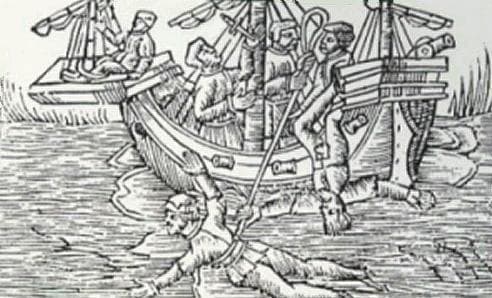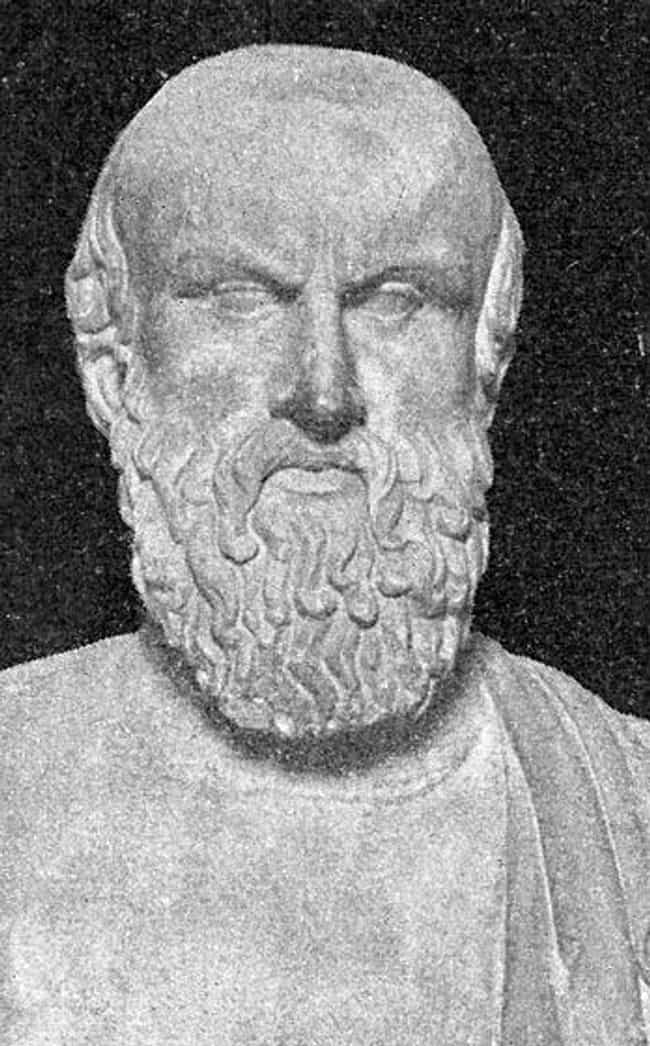
Aeschylus: Killed By A Falling Tortoise
[ranking: 1]
Age: Dec. at 69 (524 BC-455 BC)
Birthplace: Eleusis, Greece

Mithridates: Covered In Milk And Honey, Consumed By Insects
[ranking: 2]
Mithridates was a young Persian soldier in the army of King Artaxerxes II. According to Plutarch, in 401 BCE, Mithridates killed Artaxerxes's rival, his brother Cyrus, in a freak accident.
Of course, Artaxerxes took credit for slaying the mighty Cyrus himself, so when Mithridates got drunk and told everyone the real story, the enraged king sentenced him to death by scaphism.
What is scaphism? The Greek historian Plutarch explained that the prisoner was trapped between two hollow logs or row boats, then:
they drench him with a mixture of milk and honey, pouring it not only into his mouth, but all over his face. They then keep his face continually turned towards the sun; and it becomes completely covered up and hidden by the multitude of flies that settle on it. And as within the boats he does what those that eat and drink must needs do, creeping things and vermin spring out of the corruption and rottenness of the excrement, and these entering into the bowels of him, his body is consumed. When the man is manifestly dead, the uppermost boat being taken off, they find his flesh devoured, and swarms of such noisome creatures preying upon and, as it were, growing to his inwards.
Mithridates survived for 17 days, covered in milk, honey, and his own feces, before dying from a combination of dehydration, starvation, and septic shock.
Mithridates was a Persian of high rank, and son-in-law of the king Darius III, who was slain by Alexander the Great with his own hand, at the Battle of the Granicus in 334 BC, when he plunged his lance through Mithridates' face. ...more on Wikipedia

Heraclitus: Buried In Manure, Eaten By Dogs
[ranking: 3]
The sixth-century BCE philosopher Heraclitus was a bitter misanthrope who derided Hesiod and Pythagorus as ignorant, and said that Homer deserved to be beaten. He hated his fellow Ephesians so much that he finally quit society entirely. According to the biographer Diogenes La?rtius, "Finally, he became a hater of his kind and wandered the mountains... making his diet of grass and herbs."
Perhaps Heraclitus was so irritable because he suffered from dropsy, a painful swelling of the limbs. In an attempt to cure his dropsy, Heraclitus is said to have buried himself in cow manure, hoping that the damp humors that plagued him would be drawn out by the warmth of the manure.
In some versions of this story, the philosopher suffocated in the heat of the manure. However, according to the historian Neathes of Cyzicus, after covering himself in manure, Heraclitus was devoured by hungry dogs.
Heraclitus of Ephesus was a pre-Socratic Greek philosopher, a native of the Greek city Ephesus, Ionia, on the coast of Asia Minor. He was of distinguished parentage. Little is known about his early life and education, but he regarded himself as self-taught and a pioneer of wisdom. From the lonely life he led, and still more from the riddling and paradoxical nature of his philosophy and his stress upon the needless unconsciousness of humankind, he was called "The Obscure" and the "Weeping Philosopher". Heraclitus is famous for his insistence on ever-present change in the universe, as stated in the famous saying, "No man ever steps in the same river twice". He believed in the unity of ...more on Wikipedia
Age: Dec. at 60 (534 BC-474 BC)
Birthplace: Ephesus, Turkey

Milo of Croton: Stuck In A Tree, Devoured By Wolves
[ranking: 4]
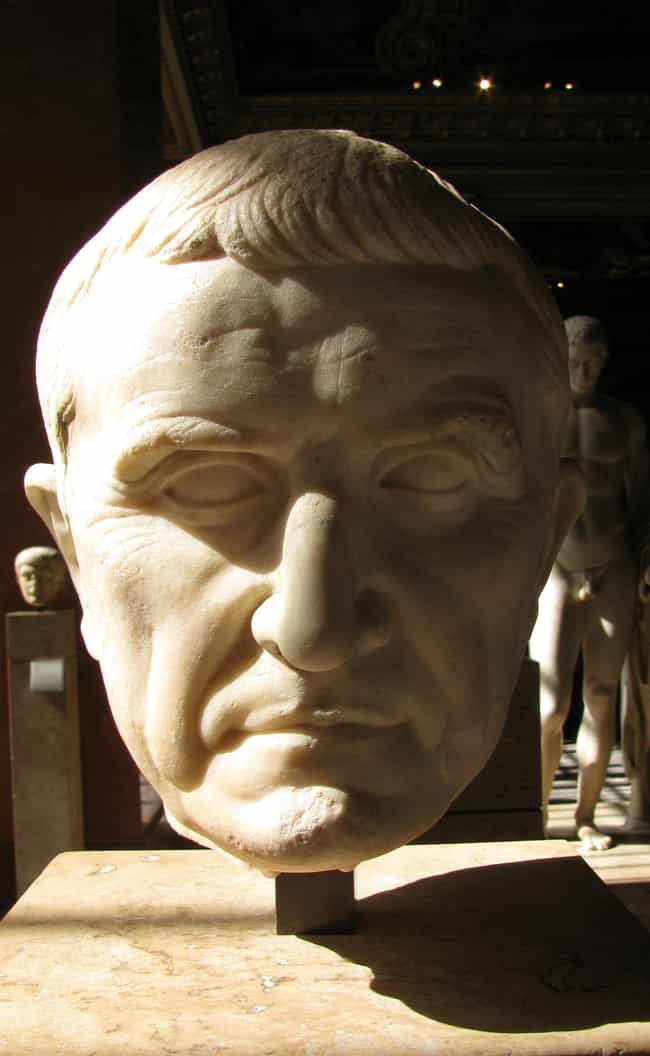
Marcus Licinius Crassus: Drank A Goblet Of Molten Gold
[ranking: 5]
Marcus Licinius Crassus was a Roman general and politician who is considered one of the wealthiest men in all of human history. He crushed the slave revolt led by Spartacus, and was a member of the First Triumvirate alongside his ally Julius Caesar and his rival Pompey. He was also notorious for a number of crimes, from shady real estate swindles to arson to corrupting a vestal virgin.
After losing to the Parthians at the battle of Carrhae in 53 BCE, Crassus was forced to drink a goblet of molten gold, symbolizing his great wealth. (Another more probable, if less exciting, version recounts that the molten gold was poured into his mouth after he'd already died.)
But that wasn't the end of Crassus's indignities. According to Plutarch, after Crassus died, he was beheaded and his head was used as a prop in a production of the Euripides's play The Bacchae, where an actor held up the head and made it sing a song.
Marcus Licinius Crassus was a Roman general and politician who played a key role in the transformation of the Roman Republic into the Roman Empire. Amassing an enormous fortune during his life, Crassus is considered the wealthiest man in Roman history, and among the richest men in all history. Crassus began his public career as a military commander under Lucius Cornelius Sulla during his civil war. Following Sulla's assumption of the dictatorship, Crassus amassed an enormous fortune through real estate speculation. Crassus rose to political prominence following his victory over the slave revolt led by Spartacus, sharing the Consulship with his rival Pompey the Great. A political and ...more on Wikipedia
Age: Dec. at 62 (114 BC-52 BC)
Birthplace: Roman Republic
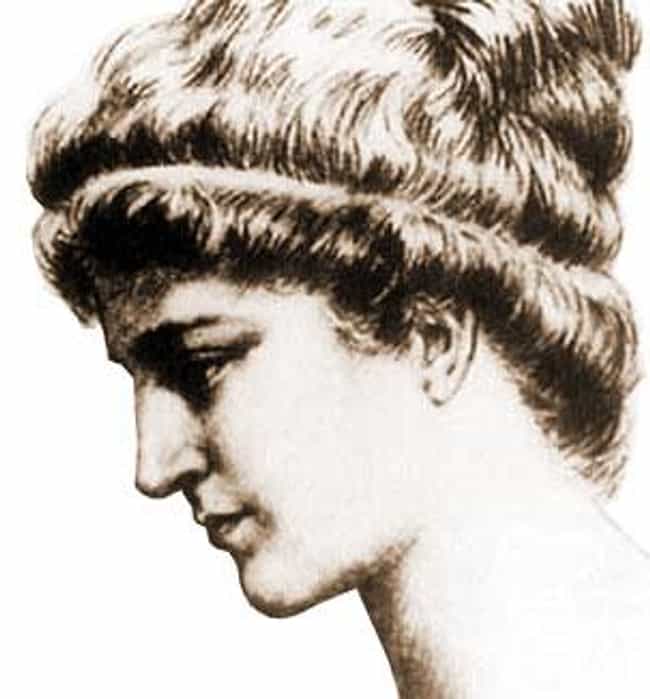
Hypatia: Skinned Alive By Seashells
[ranking: 6]
Age: Dec. at 65 (350-415)
Birthplace: Alexandria, Egypt
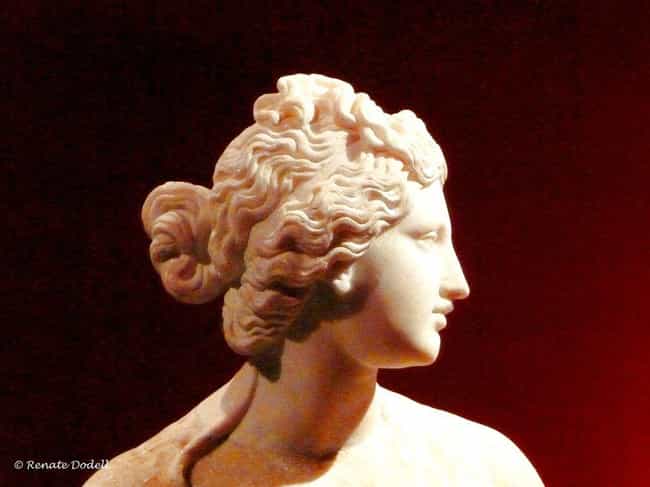
Zeuxis: Died Of Laughter After Painting A Gag
[ranking: 7]
Three centuries before Chrysippus had his last laugh, the ancient Greek painter Zeuxis met the same fate. Though none of his paintings remain today, Zeuxis was said to have been one of the greatest painters of his time, so skillful that birds would swoop down out of the sky to try and eat the grapes from his paintings. But when an old woman commissioned Zeuxis to paint a portrait of the beautiful goddess Aphrodite using her as the model, the resulting painting was so absurd, it caused Zeuxis to laugh himself to death.
Zeuxis was a painter who was active during the 5th century BC. ...more on Wikipedia
Birthplace: Heraclea Lucania
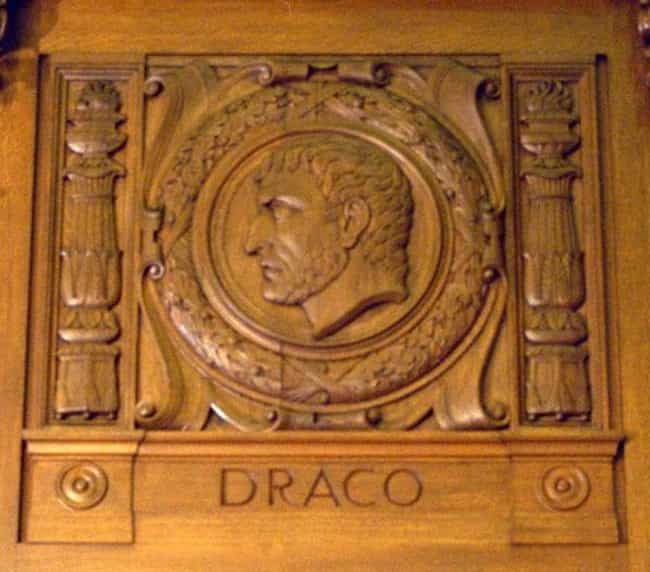
Draco: Suffocated Under A Pile Of Clothes
[ranking: 8]
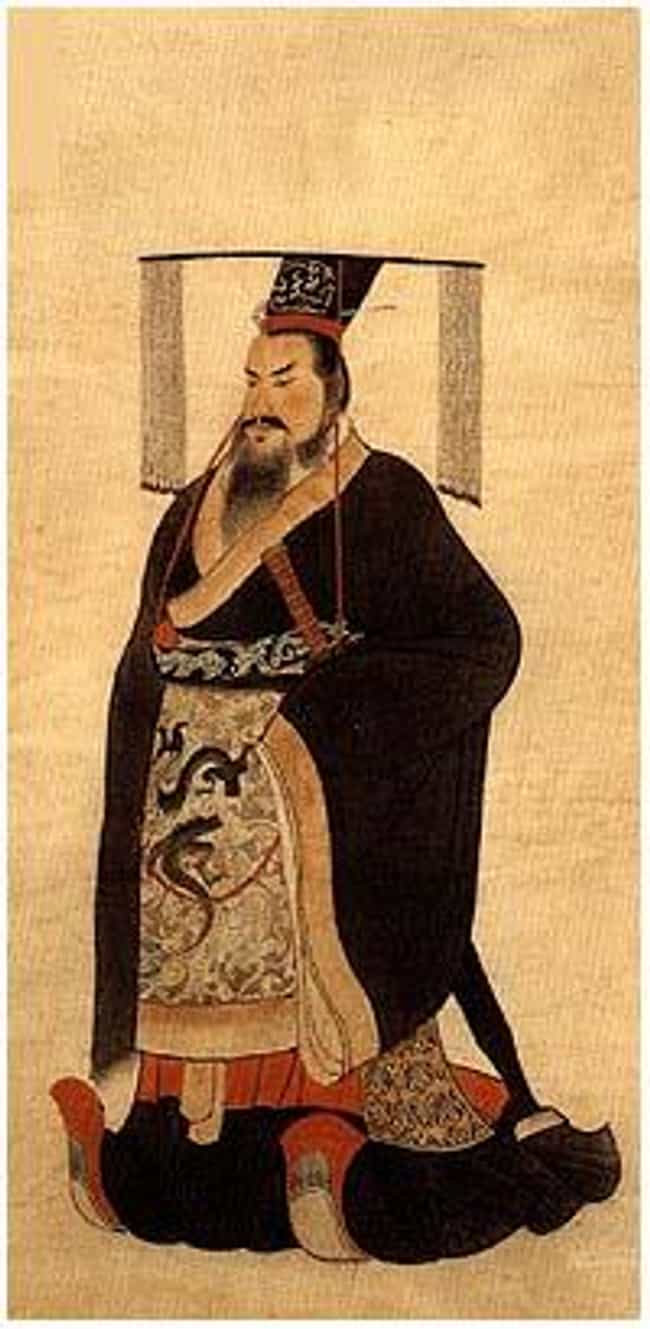
Qin Shi Huang: Mercury Poisoning While Searching For An " elixir="" of="" life""="
[ranking: 9]
Age: Dec. at 49 (258 BC-209 BC)
Birthplace: Handan, China

Empedocles: Jumped Into A Volcano
[ranking: 10]
By all accounts, the 5th-century BCE philosopher Empedocles had an impressive intellect. He was a dazzling orator, a penetrating philosopher, and a brilliant scientist. Not content with all this acclaim, however, Empedocles boasted that he had magical powers, including the ability to cure diseases, stop aging, and control the weather.
According to the biographer Diogenes La?rtius, Empedocles decided to put his money where his mouth was, leaping into the active volcano of Mount Etna to convince his followers that he had become an immortal god and ascended to Olympus. The philosopher hoped that his body would be completely consumed, but the volcano spit one of his sandals back out, exposing him as a man and not a god.
Empedocles was a Greek pre-Socratic philosopher and a citizen of Agrigentum, a Greek city in Sicily. Empedocles' philosophy is best known for being the originator of the cosmogenic theory of the four Classical elements. He also proposed powers called Love and Strife which would act as forces to bring about the mixture and separation of the elements. These physical speculations were part of a history of the universe which also dealt with the origin and development of life. Influenced by the Pythagoreans, he supported the doctrine of reincarnation. Empedocles is generally considered the last Greek philosopher to record his ideas in verse. Some of his work survives, more than in the case of any ...more on Wikipedia
Age: Dec. at 60 (489 BC-429 BC)
Birthplace: Agrigento, Italy
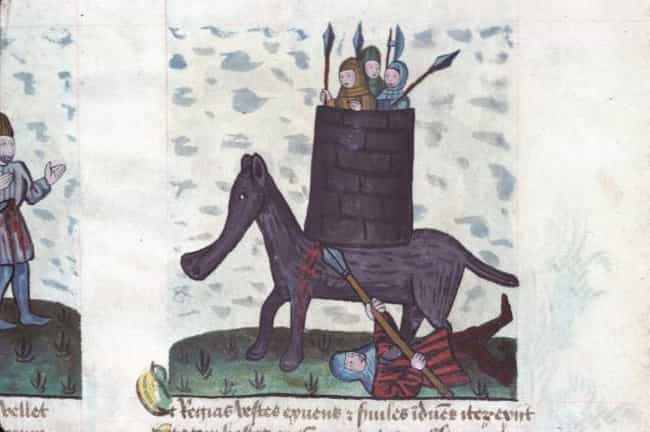
Eleazar Avaran: Crushed To Death By A War Elephant
[ranking: 11]
A Jewish soldier who fought in the Maccabean revolt against the Seleucid empire, Eleazar Avaran is primarily remembered today for the way he died. According to 1 Maccabees, during the Battle of Beth-Zechariah in 162 BCE, Eleazar spotted a war elephant that he believed carried the enemy king Antiochus V. He heroically rushed underneath the war elephant and thrust a spear into its belly, killing it ?C and himself since the dead elephant immediately collapsed and crushed him to death.
Eleazar's final act was a popular subject for artists in the Middle Ages. His willing self-sacrifice was said to prefigure the crucifixion of Jesus, and the manner of this sacrifice was a great chance to paint an elephant. Of course, most medieval painters had never seen an elephant in real life, and it shows.
Eleazar Avaran, also known as Eleazar Maccabeus, Eleazar Hachorani/Choran was the fourth son of Mattathias and the younger brother of Judas Maccabeus. He was killed at the Battle of Beth-zechariah during the Maccabean revolt. Little is known About Eleazar, except his heroic death as was told. According to the scroll of Antichus, his father saw in him a Zealot among zealots, like Pinhas. In 2 Maccabees 8:21-23 it is told that Eleazar read from the Tanakh in front of the people just before the last battle began in 3 Maccabees 6:16-19. ...more on Wikipedia
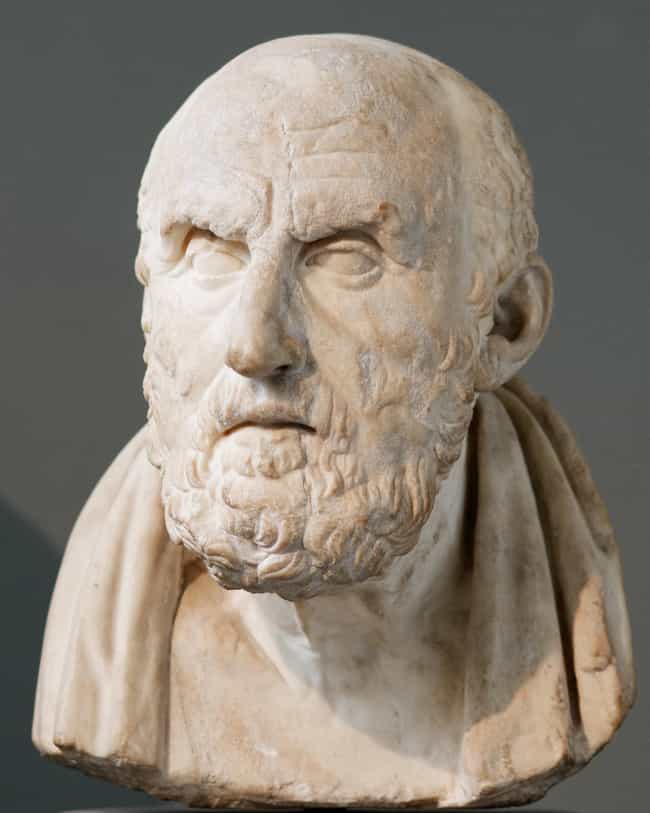
Chrysippus: Died Of Laughter
[ranking: 12]
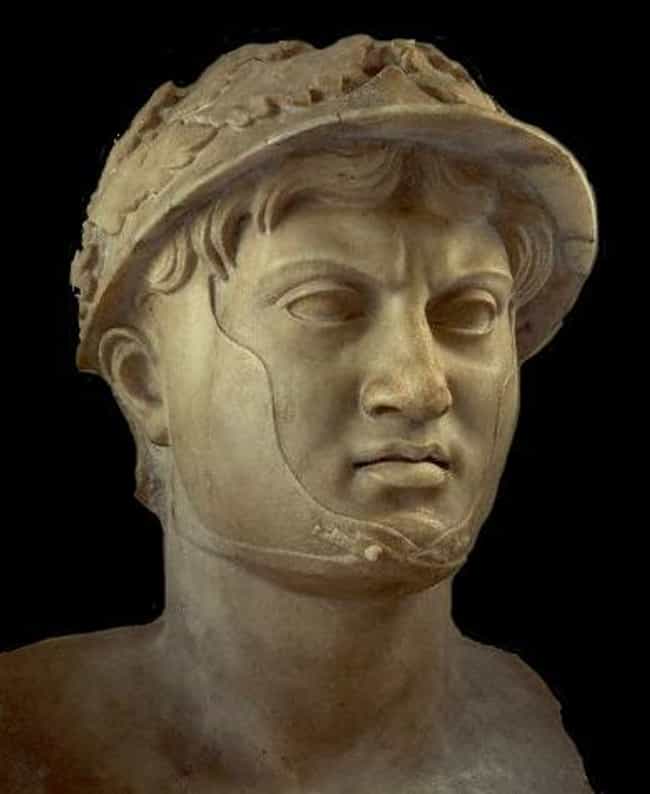
Pyrrhus Of Epirus: Killed By An Old Woman With A Roof Tile
[ranking: 13]
Pyrrhus of Epirus was a Greek general and statesman widely considered one of the greatest military commanders of the ancient world, in the company of his second cousin, Alexander the Great.
Despite all his great glory, however, Pyrrhus met a rather inglorious end, when during a battle in the city of Argos, an old lady watching the fighting from a rooftop saw Pyrrhus engaged in combat with her son below and dropped a roof tile on Pyrrhus's head, stunning him and allowing the Argive soldier to hastily finish him off.
He lives on, however, in the phrase "Pyrrhic victory," referring to a victory that is so costly, it's arguably no better than defeat.
Pyrrhus was a Greek general and statesman of the Hellenistic period. He was king of the Greek tribe of Molossians, of the royal Aeacid house, and later he became king of Epirus and Macedon. He was one of the strongest opponents of early Rome. Some of his battles, though successful, cost him heavy losses, from which the term Pyrrhic victory was coined. He is the subject of one of Plutarch's Parallel Lives. ...more on Wikipedia
Age: Dec. at 47 (318 BC-271 BC)
Birthplace: Epirus
New Random Display Show all by ranking(14 items)





